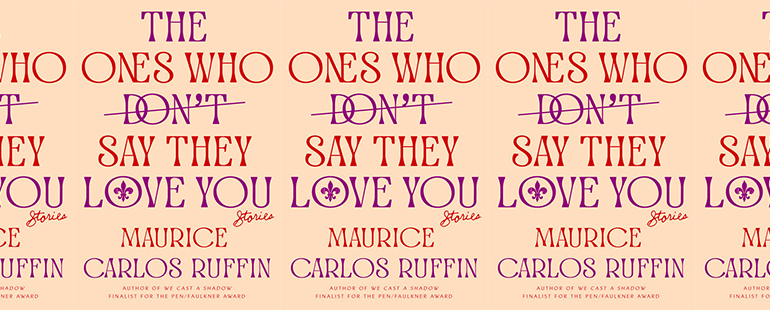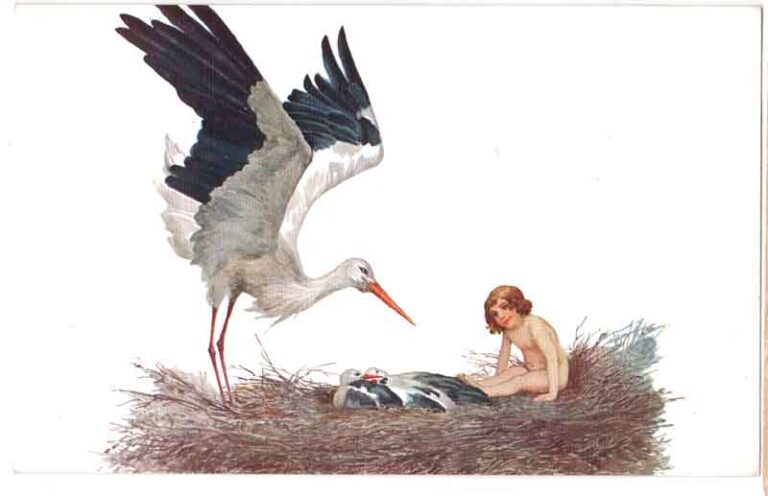The Ghosts of the Unseen in The Ones Who Don’t Say They Love You

Part of the beauty of literature, of books, of writing, is seeing the world through someone else’s eyes. It’s the beauty of living in another person’s world for a bit. It’s the beauty of adding a new perspective to your life. This is especially true when reading from the perspective of someone who is unlike you. The stories in Maurice Carlos Ruffin’s The Ones Who Don’t Say They Love You, out today, are centered on characters typically not heard from, characters typically unseen, providing the reader with ample opportunity to learn and grow.
The characters in these stories are not often centered in literary discourse, in discourse regarding the stories that we tell about ourselves as peoples. But in The Ones Who Don’t Say They Love You, we see these characters, these people who are so often unseen—formerly incarcerated people, trans youth, unhoused people—as protagonists in their own stories. And Ruffin doesn’t just stop there: we also see generations of these people try to reach out to each other, try to help each other out of traumas and conflicts. But the distance between these characters and the rest of the world, and the distance between these characters and those around them, is ever-present, and effectively captured by Ruffin—it almost feels like the characters are ghosts to each other. Ruffin writes about fathers trying to reach their sons, about peoples recently released from prison, about fathers with dead daughters, about people experiencing homelessness, showing the erasure that they feel, from outsiders and even their own, by writing about these unseen, and about the ghosts that try to reach them. Ruffin writes these characters with love, trying to show how they live and demand to be seen, how they all try to reach and love their ghosts.
There isn’t a city in the United States that follows its ghosts more than New Orleans. And in this collection, Ruffin follows the unseen through New Orleans and listens to their ghosts like no other. In the story “Beg Borrow Steal,” we follow a father and son as they travel up and down the city, Pop trying to find a job after having just been released from prison. While we read from the point of view of the son, the story stays focused on the struggles of his father. As a result, the whole time we watch Pop struggle, we are seeing not only Pop, but also the son watching Pop as society tries to erase him from the world, like an unwanted ghost. Early in the story, Pop drives to a supermarket in order to try to get a job; while he is being denied by the manager for being a “felon,” the narrator looks at the lobsters in the tank that look “like they saying help man get me out of this place.” The next group of people that Pop talks to about a job tell him to “get ghost.” Although they meant for Pop to disappear, the phrase conveys how Pop is just a ghost to those who do not want him. To them, he is just a bad memory, a convict, a checked box. He is just an unwanted ghost. But Pop is not finished with his life—he wants to press on, wants to provide, wants to pass on something to his son.
Pop, too, sometimes sees himself as a ghost. We see this when he talks about how he ended up in jail. When the son tells Pop he thinks they did Pop wrong, Pop corrects him: “I did me wrong, he say. Don’t be a dummy. You know I stole stuff. They didn’t even get me for half what I took.” Pop later adds, however, that “Just because I messed up don’t mean I can’t be somebody else now,” leaving a little wiggle room for him to find redemption.
After the family car is stolen, Pop goes to the police station, saying, “it’s about time the cops do something to help him for a change.” The cops tell him not to get his hopes up, and when Pop and the son return home, Mama asks “what kind of man get home from prison for not even a whole day and manage to make things worse. She say she can’t live like this.” The scene feels haunted, ghostlike, with Pop quiet and his hands over his face as he sits by a candle. In the moment, Mama can’t see Pop, can’t see him or what he’s trying to do; she can only see him for what he’s done to her, for what he’s cost her. And Pop can’t see anything but the price Mama has paid by being with him—he can’t see anything beyond the pain he causes her. And by them not seeing each other, this results in them not seeing the narrator. And we see that while Pop was the focus of the story, the son, who rarely moves or acts or reacts for most of the piece, takes it all in. So when he jumps in a car that looks like the one that was just stolen, taking it, we can see the cyclical nature of the story—how Pop, handcuffed and unable to do much of anything throughout so much of the piece, acted as a ghostly premonition, his son ultimately repeating the crimes, the time, and the mistakes of his father when the only door left opened for him is on an unlocked car.
These ghost story elements are also prominent in the story “Fast Hands, Fast Feet,” in which we follow a different narrator stealing from cars. At the start of the story, she steals from a one-armed man named Sergeant. Sergeant doesn’t mind her taking from the car what she needs, except for a photo he keeps there. Sergeant follows the narrator to get the picture back, but in doing so, he loses what little shelter he has, ends up in a neighborhood that isn’t “his,” and gets caught up in a police sweep that gets him arrested. By following what the narrator refers to as Sergeant’s “ghost girl picture,” by chasing what others can’t seem to see, he gets himself in trouble. Sergeant and the narrator, who are both unhoused, move like ghosts in New Orleans, with so few people paying attention to them that they both can break into a car, one to steal and one to sleep, and no one notices. But when Sergeant goes after his own ghost, he is punished.
When Sergeant finally gets his picture back, he stares at it “like there ain’t nothing in the world except for that picture.” We later find out it is a picture of his daughter. Sergeant doesn’t have much left in this world; using his one arm, he holds up the photo and flicks a lighter to stare at his ghost. Sergeant spends his time following the picture, flicking flames to see it in the night. He has nowhere to go, and no one to love or be loved by.
The ghosts of the unseen are also present in the story “The Pie Man.” In this story, Baby, the narrator, talks to his mother’s friend, the Pie Man. The story opens: “The Pie Man tells Baby that a man has got to grab his own future for his own self.” The Pie Man wants Baby to work cleaning up disasters for the city, to make money cleaning up the city’s ghosts, but Baby struggles with his own personal ghosts after his friend, Chaney, is murdered. Baby, too, is one of the unseen, as everyone just looks over him and makes assumptions regarding how he is going to respond to the murder of his friend. Even Baby’s own mother thinks the worst of him—that he is part of the jump squads retaliating against Latinos over the murder of Chaney—and Baby doesn’t even bother to correct her. Early on, we find out that the Pie Man is Baby’s biological father, and Baby talks about how he tuned out his mother “whenever she started talking about his dad, which he thought was something you proved not said.” To Baby, the Pie Man being a father was a bad ghost story, something that didn’t really track in reality. The stories of Chaney, of the Pie Man, even of the picture of Nat Turner that Baby looks at on the wall, all battle within Baby as he decides how to respond to the world around him, as he tries not to end up a ghost himself.
Halfway through the story, Baby gets jumped by some boys. When he gets home, he sees how “Blood coats his chin, and the dust from the stucco bag makes him look like a ghost. He’s afraid to wash the dust off, worried the water will activate the stucco mix and turn his head to stone.” He is aware of how he looks like a ghost, aware of how he could turn to stone and die, aware of being stagnant and stuck in his story—a ghost, like Chaney, for others to talk about. At one point in the story, the Pie Man tries to help Baby avoid becoming even more of a ghost, telling him that he and “his boys shouldn’t be so ready to go settle scores with that Spanish guy. Baby can go any way he wants, but that doesn’t mean he has to. Baby notices a corroded picture of Nat Turner clipped to one of the wall pennants.” In this moment, you see how the Pie Man acts as a ghost of sorts, trying to reach Baby, but Baby can’t see the Pie Man as anything but a stranger, and the Pie Man can’t see that he’s nothing but words to Baby, that he needs to act in order to truly try to save his son from seeking a vengeance that could turn more people into ghosts.
In The Ones Who Don’t Say They Love You, Ruffin effectively shows the reader the unseen and their ghosts. By seeing these characters, we can capture a glimpse of them, of their lives. We can empathize and understand their world a little better, and our world, too. In so many of Ruffin’s stories, we see the unseen, and what they are trying to do, but their generations, our generations, must talk to each other, must communicate. There is no better way to understand each other’s actions than hearing what is said from the ghosts in our lives, and in his collection, Ruffin tries to give the unseen as much of a spotlight as he can, and he tries to give their ghosts as much of a voice as he can. But hearing them, and seeing them, is up to us, as readers, as peoples.
This piece was originally published on August 17, 2021.


